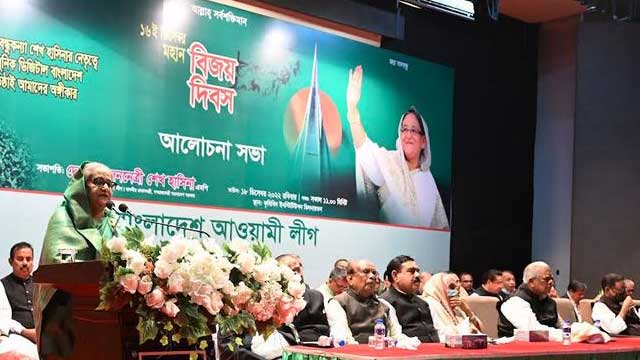The prices of electricity, gas and diesel are set to increase one by one as the government pulls back the subsidies in keeping with the austerity measures.
Everyone must be prepared to pay the actual cost of producing electricity and procuring gas, Prime Minister Sheikh Hasina told a discussion arranged by Bangladesh Awami League yesterday at Krishibid Institution in Dhaka.
Given the global economic slowdown, it will not be possible to provide subsidies, she said.
If the subsidy is withdrawn, the electricity price would be 33.9 percent more at Tk 8.30 per kilowatt-and the gas price 30.6 percent higher at Tk 11.62 per cubic metre, according to the latest electricity and gas price adjustment announcement of the Bangladesh Energy Regulatory Commission.
The regulatory body calculated Tk 17,000 crore as subsidy for electricity and Tk 6,000 crore for gas.
"Under the present circumstances, the subsidy the government has to pay is too much of a burden," Nasrul Hamid, the state minister for power, energy and mineral resources, said.
The government will first cut the subsidy for electricity.
"We are working on it," he said, adding that the industries and the affluent group would be the first to pay the higher electricity.
Hamid cited the example of India and Singapore, where private producers produce electricity and sell directly to the end-users at their cost price.
The price of diesel will also increase by Tk 8 per litre at least.
The prices of diesel, petrol and octane are fixed by the Bangladesh Petroleum Corporation, which runs on a break-even basis.
However, between fiscals 2014-15 and 2020-21, BPC made profits of Tk 48,119 crore. But the state-owned company started losing money thanks to escalating prices in the international market following the Ukraine-Russia war that began in February.
On August 5, the government hiked the fuel price by a record 51.7 percent on average to bring it closer to the rate prevailing in the global market. At that time, BPC said the earlier profits were ploughed back to cover up the loss in the previous five months and also spent a portion of money on the development works.
After the price adjustment, BPC still incurred losses of Tk 8 per litre, according to Hamid.
"Consumers will have to pay the international price. If the international price is high, they will have to pay that price and if it is low in the international market, they will pay less," he said.
In India, the pricing of petrol and diesel is done through a 'daily pricing' mechanism based on a 15-day rolling average international rate, the exchange rate, tax structure, inland freight and other costs.





